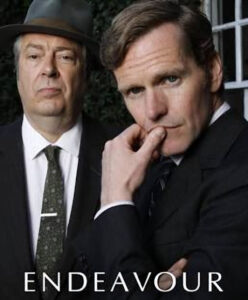
Every choice comes with a consequence. —Roy T. Bennett
* * *
Human history is strewn with the results of bad decisions.
- Someone decided to fill the Hindenburg airship with hydrogen rather than helium. Thirty-six people died.
- The captain of the Titanic decided to maintain speed through the icy waters of the North Atlantic even though icebergs had been reported in the area. More than fifteen hundred people died.
- Napoleon decided to invade Russia and lost most of his army. Nearly a million people died.
* * *
Sometimes a disaster isn’t the result of just one bad decision, but many small ones.
Take the story of the Titan missile disaster, for example. (Most of the facts cited here were taken from the This American Life podcast, Episode 634. A transcript can be found here.)
As most of us know, there are missile silos located all over the United States. They house intercontinental ballistic missiles that are armed with nuclear warheads intended to keep us safe by preventing bad actors from trying to attack the U.S.
Missile sites are placed deep underground with heavily insulated control centers nearby, and lots and lots of concrete and steel between the silo and the outside world.
Now you might think ICBMs just sit in their silos waiting for something to happen. But actually, the missiles have to be maintained just like any other manmade artifact. You would think that such a high-stakes situation would be so closely monitored that nothing could go wrong.
You would think.
In September 1980, the Titan II missile in Damascus, Arkansas was scheduled for maintenance. The Titan II, at that time the most powerful weapon in the American nuclear arsenal, was loaded with two different liquid fuels in separate compartments rather than the solid fuel used in later missiles. If the highly volatile, toxic liquid fuels escaped or met unexpectedly, there could be a disaster.
Two young men were assigned the maintenance task. The first one, we’ll call him Primary Worker, was experienced. The second, let’s call him Trainee, was in training.
The task was straightforward. One of the missile’s fuel tanks was low on pressure, so all they had to do was take off a cap and add some fuel. Sort of like pumping gas into your car. Primary Worker was familiar with the procedure. No problem.
In order for the work to begin, however, the hydraulic platform, which was like an elevator that went up and down the side of the missile, had to be lowered. But there was a problem with the platform, and the maintenance guys had to wait for a couple of hours while workers fixed it.
At this point, it was late Friday afternoon, heading into evening. You can just imagine two young men who are eager to meet friends and start the weekend being told there was a delay. It must have been frustrating. We all know what it’s like when we have something planned, but somebody throws a wrench into the works. (This will be extremely meaningful later.)
Finally, the hydraulic platform was repaired. The two young men donned their protective suits and started down the long tunnel to the silo. At some point, they realized they had forgotten the torque wrench that was required for the job.
Rather than causing a further delay by getting out of his suit, following all the protocol of going back to his truck to retrieve the torque wrench, and then redoing everything, Primary Worker made Bad Decision #1: ignore the regulation and use a huge, two-piece ratchet wrench which he had with him. Trainee questioned the decision, but Primary Worker said he’d done it before, and it was not a problem.
The two men proceeded to the silo and took the hydraulic platform up. When it stopped, they were roughly eighty feet above the base of the missile.
The platform had a rubber bumper that was supposed to be flush against the side of the missile to prevent anything from dropping, but the equipment was old, and there was a gap between the platform and the missile.
The two men used the ratchet wrench to remove the cap from the missile. Everything went smoothly.
Bad decision #2: One of the men handed his part of the wrench to the other one. The other man dropped it.
Are you getting worried yet?
The socket fell between the platform and the side of the missile. Of course, it gained momentum as it plummeted eighty feet. My husband calculated it was probably going about fifty mph when it hit the thrust ring that the missile sat atop, bounced, and—you guessed it—punctured a hole in the side of the missile. Fuel began to spray out. What are the chances?
At this point, the maintenance men should have radioed the control center and told them about the accident. They didn’t.
Bad decision #3: Instead of contacting the control center and owning up to what had happened, Primary Worker simply called in and said there was a cloud of vapor coming out of the side of the rocket. The maintenance men were ordered back to the control center.
Alarms began to sound in the control center. Horns were going off, lights were flashing, and people there were rushing around trying to understand the problem, but it didn’t make sense because they didn’t have the whole picture.
When the maintenance men got back to the control center, they saw the chaos that was in progress, but they made Bad decision #4: they still didn’t let the authorities know that the side of the missile had been punctured. Since the fuel compartments were pressurized, at some point enough fuel would leak out, the bottom compartment would collapse, and there would probably be an explosion. But the people in the control center didn’t know how to treat the problem because they didn’t know what the problem was.
Finally, one of the controllers suspected the maintenance men were holding something back, so he approached them and insisted that they say exactly what had happened. They finally came clean.
When the truth became clear, the people in the control center realized an explosion was imminent. They contacted their superiors.
The question was whether to remain in the control center which was designed to withstand a nuclear hit, or to evacuate.
Bad decision #5: The commanding officer ordered them to evacuate.
When the explosion came, there were men outside in the fields and woods around the complex. Huge chunks of metal and concrete debris, some as large as a school bus, rained down. The lid of the silo, a 1.5-million pound slab of concrete and steel, was hurled over 500 feet.
The nuclear warhead ejected from the missile and landed in a ditch a quarter mile away from the silo. It didn’t detonate. If it had … well, let’s not think about that.
So there you have it. A perfect storm of bad decisions. At each stage, the stakes were raised that led to a disaster. It could have been worse.
Incidentally, the accident prompted a change in regulations. Workers now have to attach their tools to themselves by a lanyard. Good decision.
* * *
Although we try to avoid making bad decisions in real life, they can be the stuff of great fiction. After all, bad decisions are usually born out of base human fallacies: fear, hubris, anger, greed, envy, lust, impatience, frustration… The list goes on. And these make wonderful fodder for storytelling. As each bad choice is made in a story, it ratchets (pun intended) up the tension. Each new decision raises the stakes and ensures the reader will turn the page.
Think of some of the great fictional examples of bad choices.
- The Trojans decided to accept the gift of a wooden horse from the Greeks.
- The mayor of Amity Island in the movie Jaws decided to keep the beaches open even though there had been a shark sighted in the area.
- Scientists decided to use DNA extracted from fossilized mosquitoes to create dinosaurs in Jurassic Park.
It just goes to show you:
Bad choices make good stories. —Rajkumar Hirani
* * *
So TKZers: Can you think of any examples of bad decision-making from books you’ve read? How about characters in your own books. Have they made bad choices?

Private pilot Cassie Deakin has to decide whom she can trust while she’s looking for a murderer. Her bad choices almost get her killed.
Available at Amazon, Barnes & Noble, Kobo, Google Play, or Apple Books.




 Coming Soon!
Coming Soon!






















